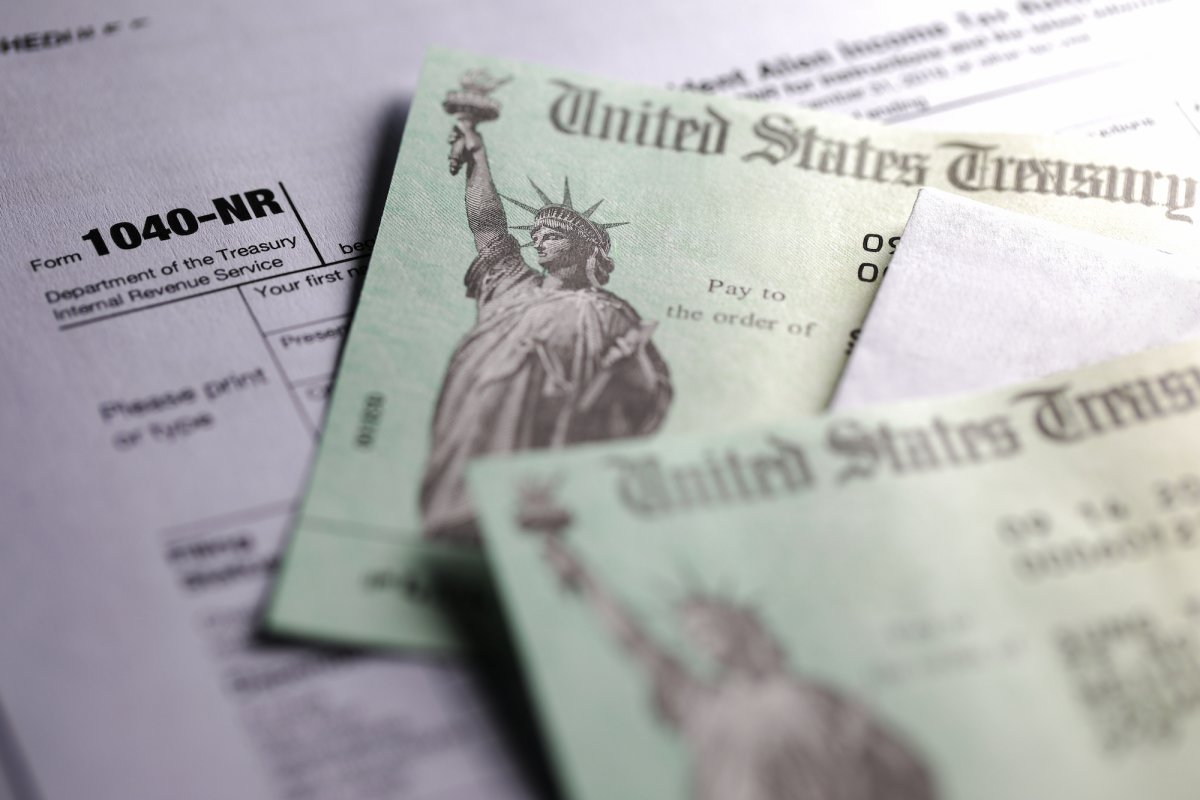[ad_1]
The COVID-19 pandemic prompted most states to shut down businesses for at least part of last year, resulting in millions of workers being laid off. To keep the economy humming, the government issued two sets of economic impact payments. The first was a $1,200 check sent to nearly 160 million people in the late spring and early summer, and that was followed by a second $600 payment at the end of 2020. In both cases, extra money was allotted for families with minor children.
As we head into the tax filing season, you may now be wondering if and how those payments will affect your tax bill. Keep reading for answers to common questions.
Do I Need to Pay Taxes on Stimulus Payments?
The good news is that the stimulus checks received last year won’t increase tax bills this spring.
“None of the stimulus payments are taxable,” says Jerry Zeigler, an enrolled agent who is also a financial coach with SaverLife, a nonprofit organization that works to encourage people to save money and improve their financial situation.
However, you don’t need to take a tax professional’s word for it. The IRS instructions for this year’s 1040 form state, in part: “Any economic impact payments you received are not taxable for federal income tax purposes.”
What Is the Recovery Rebate Credit?
Taxpayers will see a new line on this year’s 1040 form. Line 30 provides a place to claim a recovery rebate credit. However, if you received stimulus payments last year, you probably won’t qualify for the rebate.
“The checks you have received are an advance on that credit,” says Raymond Edwards, national technical tax director for wealth management firm Aspiriant.
Those who didn’t receive payments last year or who had a change in their situation, such as the addition of a child, can complete a worksheet to determine whether they are eligible to claim the credit on their 2020 tax return.
Will I Have to Return a Stimulus Payment if I Earned More in 2020?
For last year’s payments, only single taxpayers with adjusted gross incomes at or below $75,000 and married couples, filing jointly, with adjusted gross incomes at or below $150,000 were eligible for the full amount. To determine eligibility, the government used 2018 and 2019 tax return data.
Since the stimulus payments were actually an advance on the recovery rebate credit, some people may worry they will need to return the money if their 2020 income is above the eligibility limits. Fortunately, that shouldn’t be a concern.
“Our understanding is they are just going to forgive it,” says Greg Hammer, president of Hammer Financial Group in Schererville, Indiana. In other words, there are no plans for the IRS to try to recoup the money from those who earned more last year.
What Happens if My Dependents Changed in 2020?
If you added a new child to your family in 2020, you may be eligible for a recovery rebate credit for that child. On the other hand, if you have an adult child that you will no longer be claiming as a dependent this year, that child may be eligible for their own credit when filing 2020 tax forms.
Divorced parents who claim children on alternate years may also benefit from a recovery rebate credit, according to Zeigler. For instance, if one parent claimed a child in 2019 and received a stimulus payment last year, the second parent may be able to claim the child on their 2020 return and receive a credit this year.
Could a Third Stimulus Check Affect My 2020 Taxes?
There has been talk of a third stimulus payment being issued this spring, but it shouldn’t affect 2020 tax returns. “I think it’s too late to call this new payment a 2020 payment,” Edwards says.
While the details of a new stimulus package are still unclear, some observers believe qualifications will be tightened for future checks. “Eligibility for the payment is more than likely going to be different this time around,” says Mike Schenk, chief economist for the Credit Union National Association.
That means those who think their 2020 income will be too high to qualify for a new stimulus payment may want to wait to file their tax return until closer to the April 15 deadline. Meanwhile, those who weren’t eligible for a check last year but have since seen their income drop may want to file as soon as possible to avoid any delay in receiving a new stimulus payment, if one is approved.
[ad_2]
